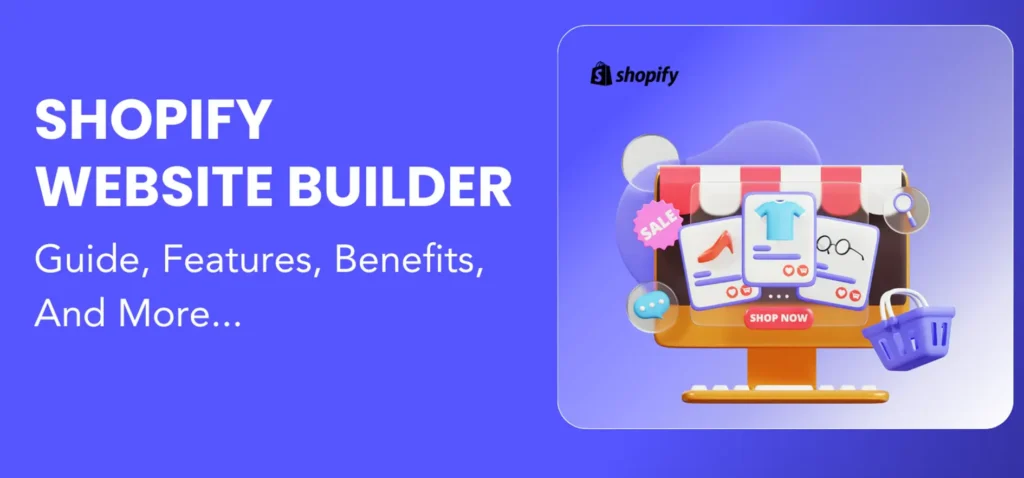1. User-Friendly Interface: One of Shopify’s strongest selling points is its user-friendly interface. It’s designed for everyone, including those without technical knowledge. You don’t need to be a web developer or a designer to create a professional-looking website. With a variety of themes and drag-and-drop options, Shopify makes it easy to customize your store to fit your brand’s look and feel.
Whether you’re adding products, editing prices, or managing inventory, the intuitive admin panel ensures that you can efficiently handle your store’s day-to-day operations.
2. Wide Range of Professional Themes: Shopify offers an extensive collection of both free and paid themes, designed by professional developers. These themes are responsive, meaning your website will look and function well across all devices, from desktop computers to smartphones.
This level of design flexibility means you can find the perfect theme that aligns with your brand’s aesthetic and industry. Plus, all themes can be easily customized, allowing you to stand out from the competition without needing extensive design skills.
3. Scalability for Growing Businesses: One of the most significant advantages of Shopify is its scalability. Whether you’re a small business owner or running a large-scale enterprise, Shopify can accommodate your needs.
The platform offers a variety of pricing plans, allowing you to start small and upgrade as your business grows. Shopify’s ability to handle a wide range of traffic and sales volumes means you won’t need to worry about outgrowing your platform as your business expands.
4. Secure and Reliable: Security is a top priority for any online business, especially when dealing with sensitive customer data and payments. Shopify is a fully hosted platform that ensures your website is secure, up-to-date, and performs optimally.
With Shopify, your store benefits from a Level 1 PCI DSS (Payment Card Industry Data Security Standard) compliant setup, meaning it meets all the industry requirements for handling cardholder data. Moreover, Shopify handles all security updates, so you can focus on running your business without worrying about potential threats.
5. Powerful Built-In Marketing Tools: Driving traffic to your online store is essential, and Shopify makes it easier with a suite of
built-in marketing tools. Whether it’s SEO optimization, social media integration, or email marketing, Shopify gives you the tools to effectively promote your products.
Shopify’s SEO-friendly features ensure that your website can be easily found by search engines like Google. You can also integrate your store with Facebook, Instagram, and Pinterest, allowing you to sell directly through social media platforms. Additionally, you can
launch email campaigns and set up discount codes directly from your Shopify dashboard, making it easy to reach customers.
6. App Integrations for Custom Functionality: While Shopify comes with a variety of powerful features out of the box, its app store provides even more options to enhance your website’s functionality. There are thousands of apps available to address any unique needs your business might have, from accounting to customer support, shipping solutions, and more.
For instance, you can integrate third-party apps for abandoned cart recovery, advanced analytics, and CRM tools. These integrations allow you to create a highly personalized experience for your customers and streamline your back-end processes.
7. Mobile Optimization: With more consumers shopping on their smartphones and tablets, having a mobile optimized website is no longer optional—it’s essential. Shopify themes are fully responsive, ensuring your store looks great and functions seamlessly across all devices.
Additionally, Shopify offers a mobile app that allows store owners to manage their business on the go. Whether you’re fulfilling orders, managing inventory, or tracking sales, you can do it all from your smartphone, ensuring you’re never out of touch with your business.
8. Comprehensive Customer Support Shopify provides 24/7 customer support to ensure that any issues you face are resolved quickly and efficiently. Whether through email, live chat, or phone, you can access expert advice whenever you need it.
Additionally, Shopify’s extensive online resources—including guides, forums, and tutorials—mean that you can often find answers to your questions independently. This level of support gives store owners peace of mind, knowing that help is always available when they need it.
9. Seamless Payment Integration Shopify supports a wide range of payment gateways, making it easy for your customers to
complete transactions using their preferred payment methods. In addition to its own payment gateway, Shopify Payments, you can integrate PayPal, Stripe, and many other options.
Shopify Payments comes with several advantages, including lower transaction fees and a streamlined checkout experience. This variety in payment options helps reduce cart abandonment and enhances the overall customer experience.
10. Analytics and Reporting Understanding your store’s performance is crucial to long-term success, and Shopify offers robust analytics and reporting tools to help you make informed decisions. From tracking sales to understanding customer behavior, Shopify’s reports give you valuable insights into how your business is doing.
You can view data on website traffic, conversion rates, average order value, and more. Additionally, integrating Google Analytics with Shopify can provide even more in-depth reporting, helping you refine your marketing strategies and improve the overall performance of your store.




